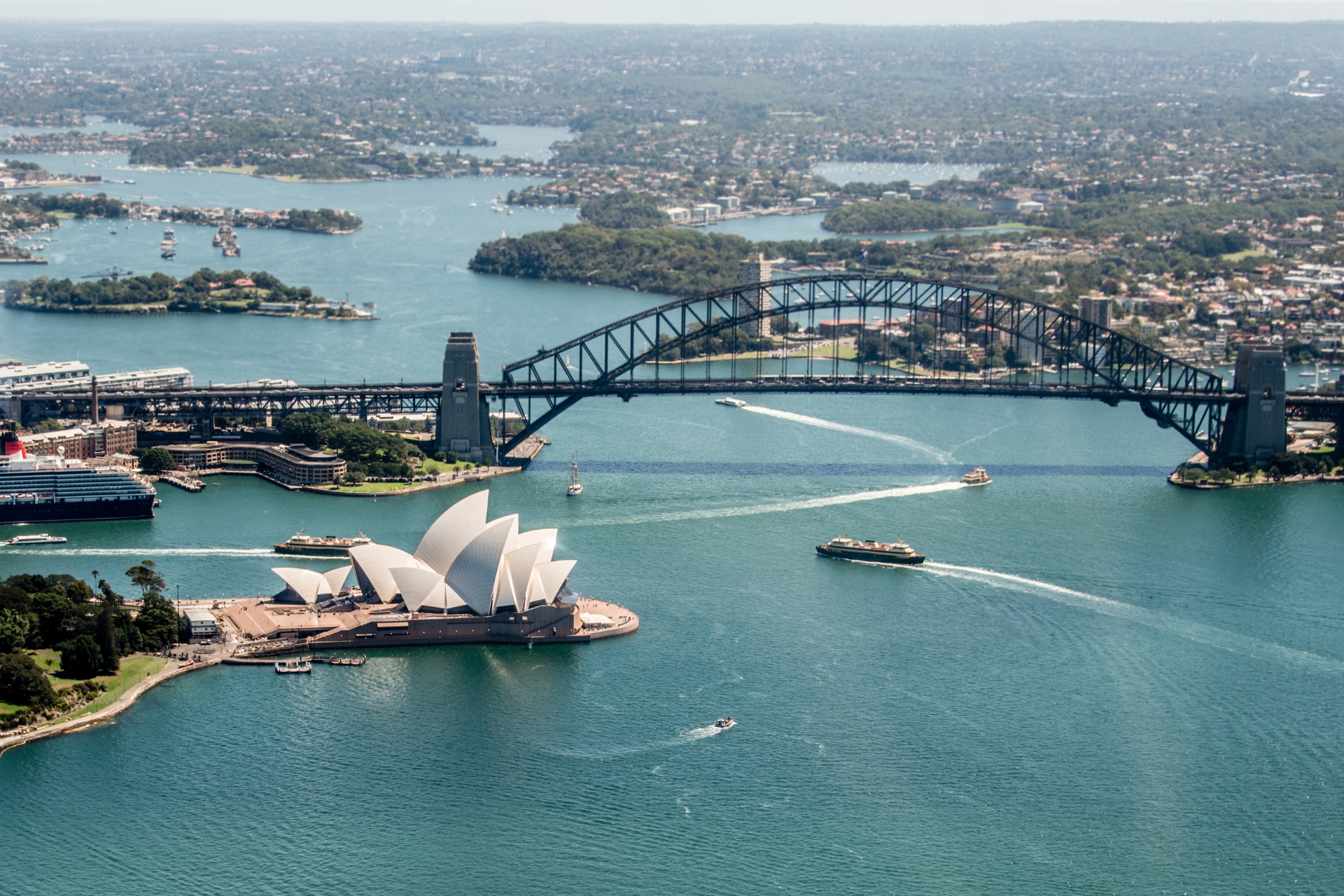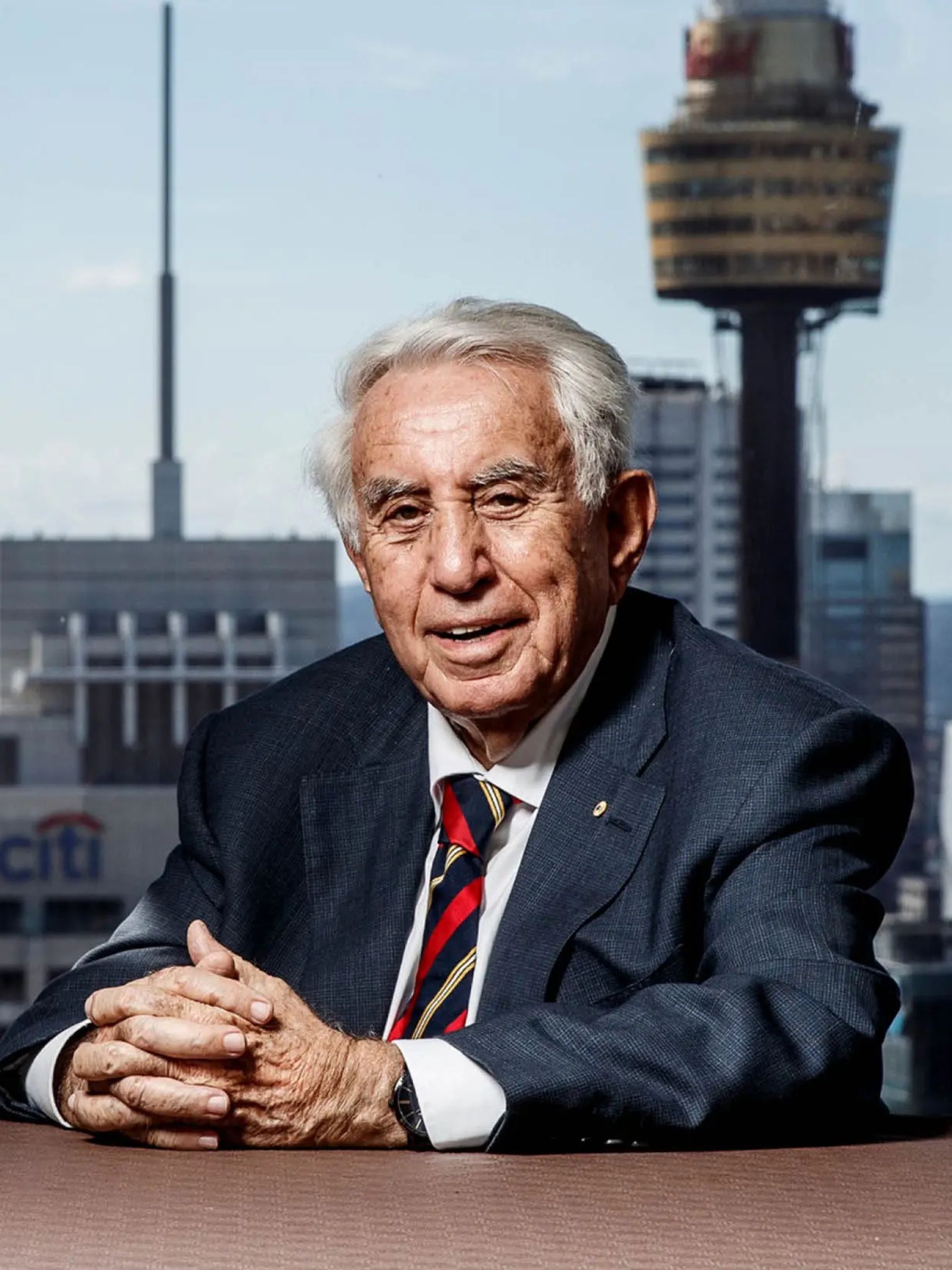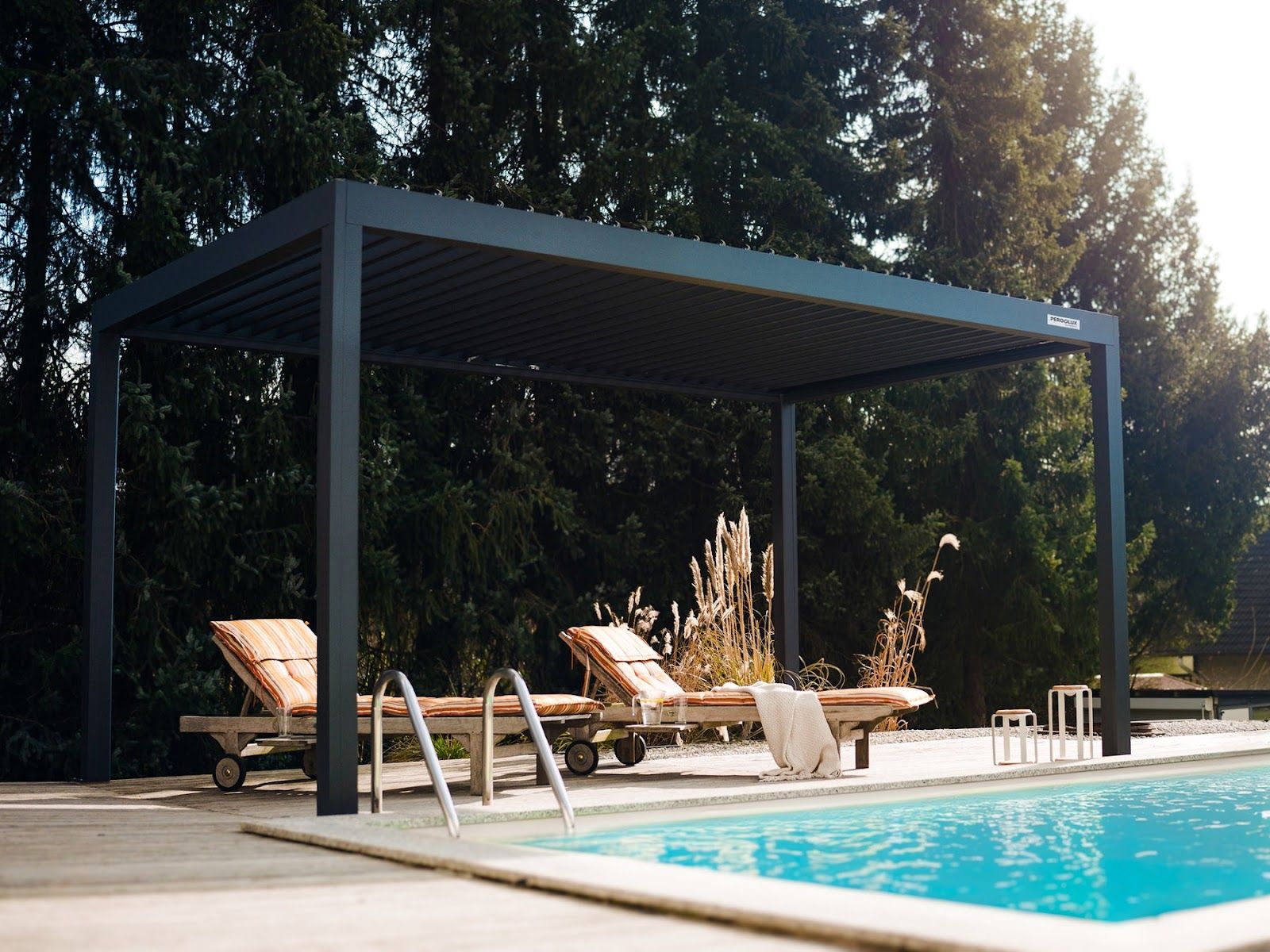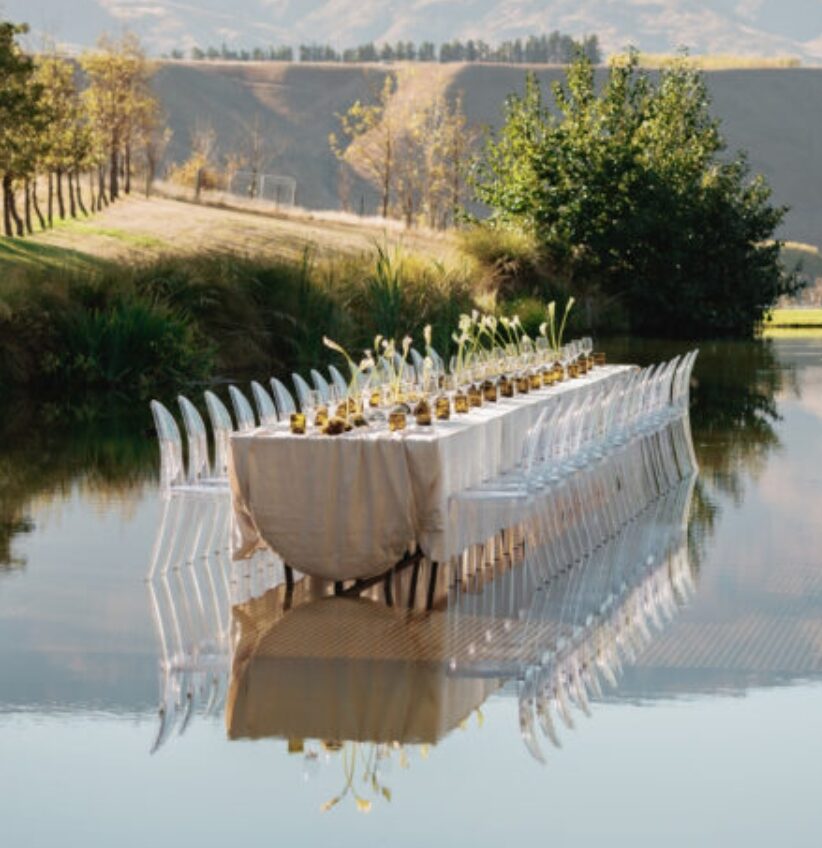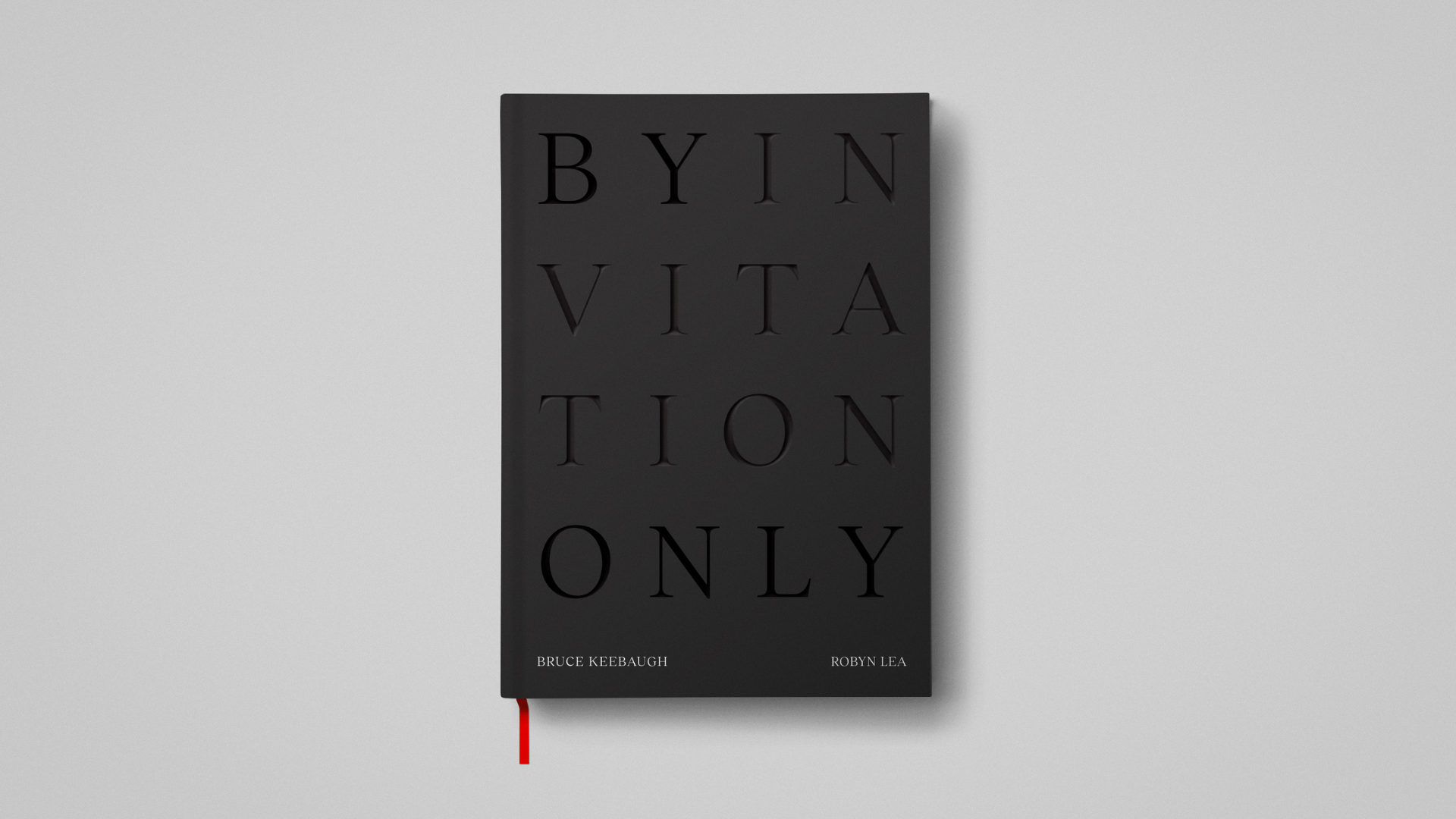More psychologists are prescribing time in nature. Here’s why
There’s no silver bullet when it comes to curing burnout. But a new study shows that spending time in nature might be the most effective way to destress, while reconnecting with yourself. An Esquire writer puts the research to the test
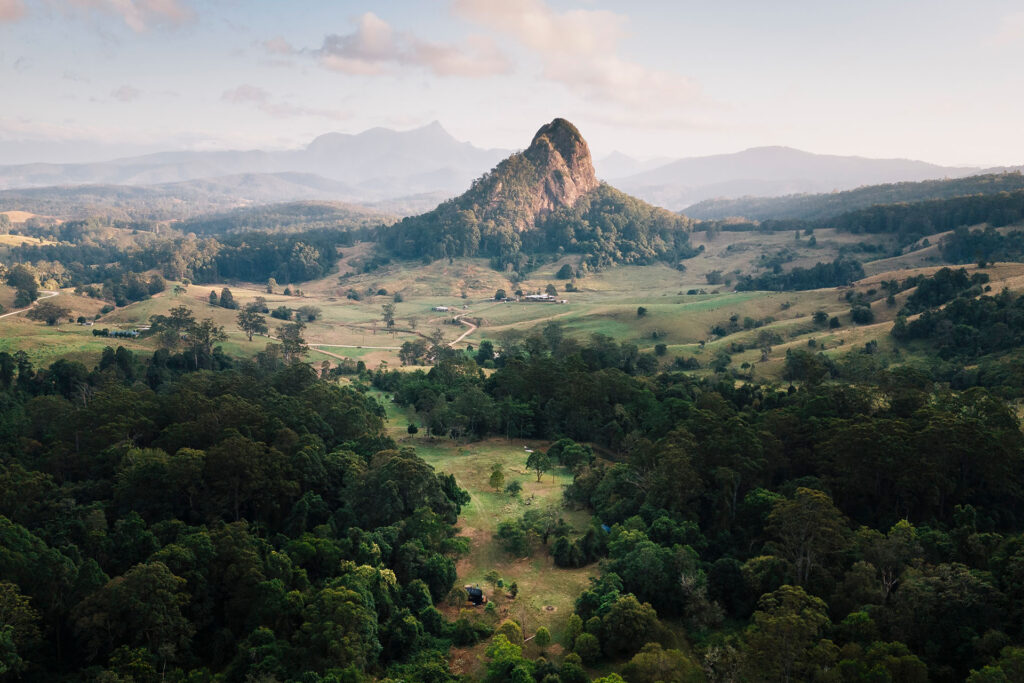
I’M DRIVING DOWN the M1, towards the small town of Jamberoo on the New South Wales south coast, for a two-night stay at an Unyoked cabin. My car is stuffed with warm clothes and provisions, but I’m not really sure what to expect. Not from the Unyoked experience – I’m lucky enough to have stayed at one of these tiny houses previously, and remember the campfire cooking and stocked fridge well (those tinned negronis are strong). Instead, I’m unsure of what to expect from myself.
When I booked the stay, I booked for two people. But having recently separated from my partner, I was going alone. I had considered cancelling, or taking a friend, but I figured I needed to get comfortable with being in my own company again. Plus, the trip was wellness-focused. Unyoked had just partnered with wellbeing consultancy firm Corus and Alltrails on a report into the positive psychological impacts of time spent in nature, which, in my current state, was something I could benefit from.
So, off I went.
Cam and Chris Grant launched Unyoked, which they refer to as a ‘nature company’ with over 100 off-grid cabins scattered across Australia, New Zealand and Europe, because of how being in the outdoors made them feel. “At a time in our lives when stress was high and access to nature was limited, getting off the grid made a massive difference to our sense of calm, put things in perspective and helped us generally just slow down,” Cam explains. “For some reason, modern life has led a lot of us to forget just how powerful stepping outdoors can be, mentally and physically.”
Unyoked’s messaging has always revolved around the value of getting out of the city, switching off and reconnecting with nature, which is rooted in its commitment to looking after the environment – all of Unyoked’s cabins are solar-powered, use rainwater and guests must take their rubbish with them at the end of a stay (or pay the caretakers a small fee to dispose of it). In our very online, hustle-obsessed culture, the company’s mission – to ‘help more people access nature more often’ – has been extremely effective. Last year, it expanded its business model to Europe following a $28 million round of funding, and its Australian cabins are consistently booked out months in advance.
The Grants (they are brothers) point out that the concept of ‘ecotherapy’ – engaging with nature to improve mental or physical health – has been around for years, yet it’s still not considered a mainstream psychological intervention. Today, if you’re suffering from burnout and you seek professional help, you’re more likely to be prescribed established treatments like cognitive behavioural therapy, mindfulness, lifestyle changes and antidepressants than you are a week off-grid. This is why Unyoked, Corus and Alltrails wanted to run a study on the effectiveness of time spent in nature on mental wellbeing. But even they were surprised by the profoundness of the findings.
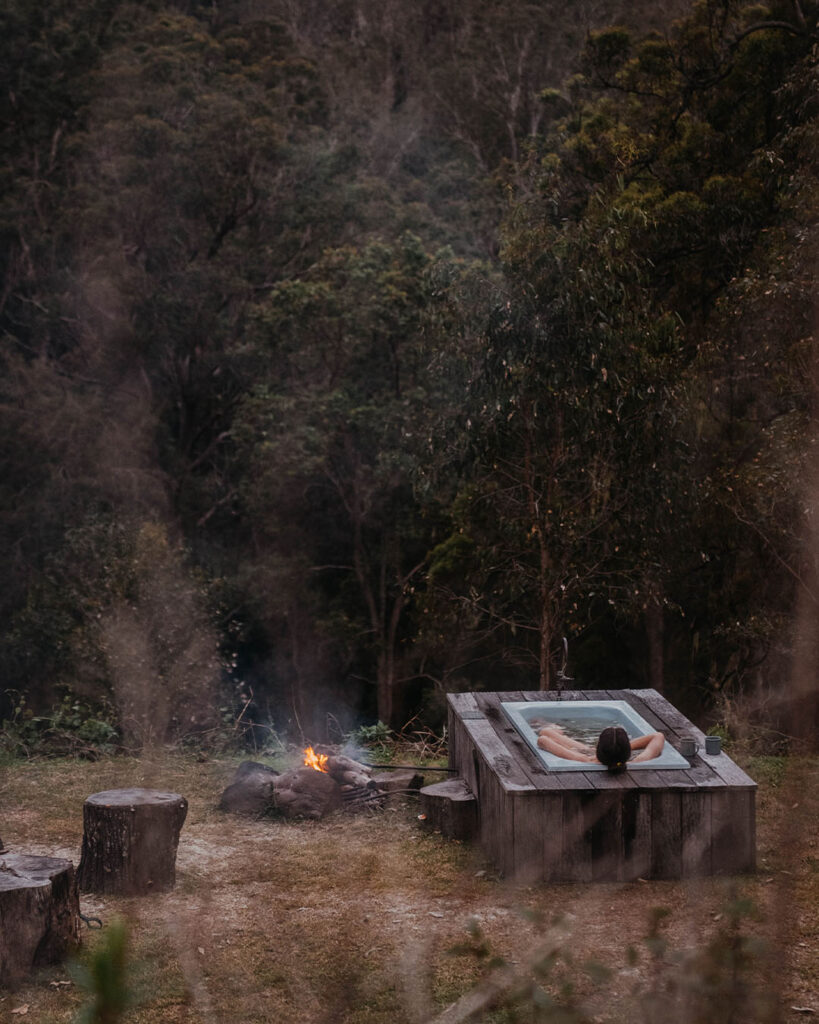
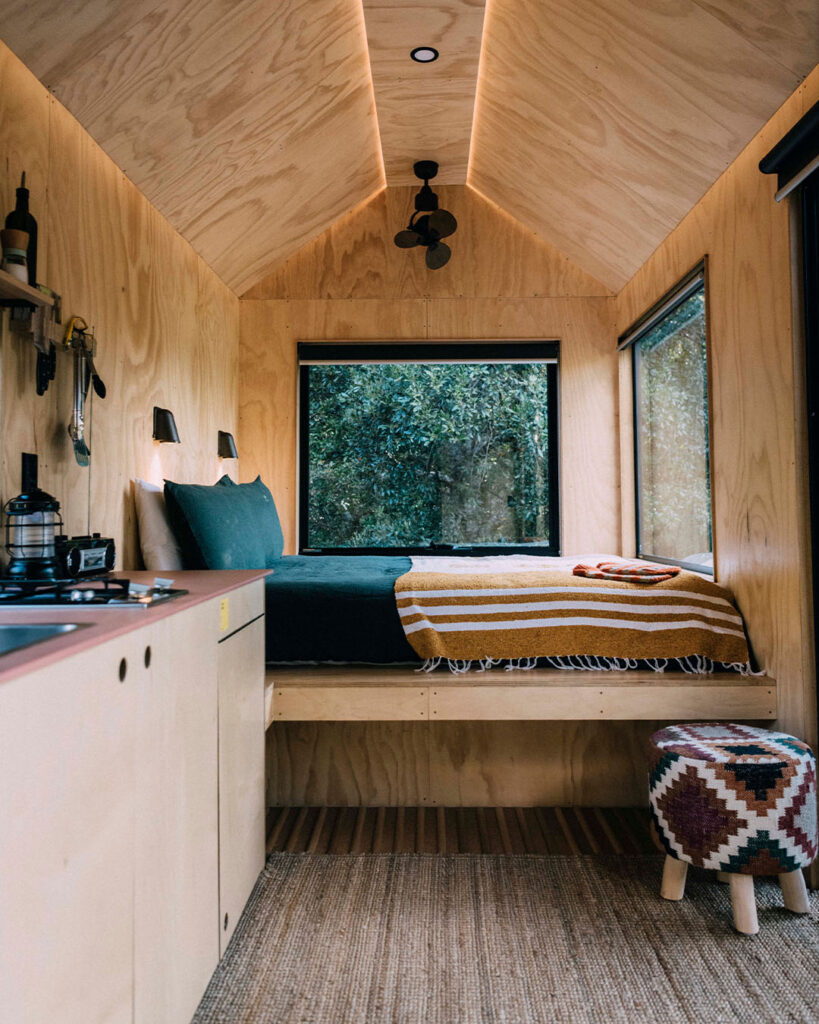
According to the Global Nature Study, participants who spent two nights at an Unyoked cabin, reported a 12.7 percent improvement in mental wellbeing, and a 16.1 percent reduction in burnout as measured by the Short Warwick-Edinburgh Mental Wellbeing Scale (SWEMWBS). To put this into perspective, the study claims that’s 37 percent more effective than cognitive behavioural therapy (CBT) and 51 percent more effective than mindfulness (of course, these practices are still very valuable). On top of that, participants, who were interviewed before and after the experience, also claimed a 10.41 percent increase in feeling connected to nature.
“These results surpass those typically seen in established interventions like mindfulness and cognitive behavioural therapy, positioning nature immersion as a powerful tool for enhancing mental health and overall wellbeing,” reads the study’s executive summary. “The data are unequivocal in demonstrating that the positive benefits are attributable to the Unyoked intervention. Notably, the study found that individuals struggling with lower initial wellbeing experienced the most significant benefits, suggesting nature’s restorative potential for those in greater need.”
It may be an internetty expression waged at people with first world complaints, but there’s a reason ‘go touch grass’ has become such a popular expression: there’s scientific evidence behind it.
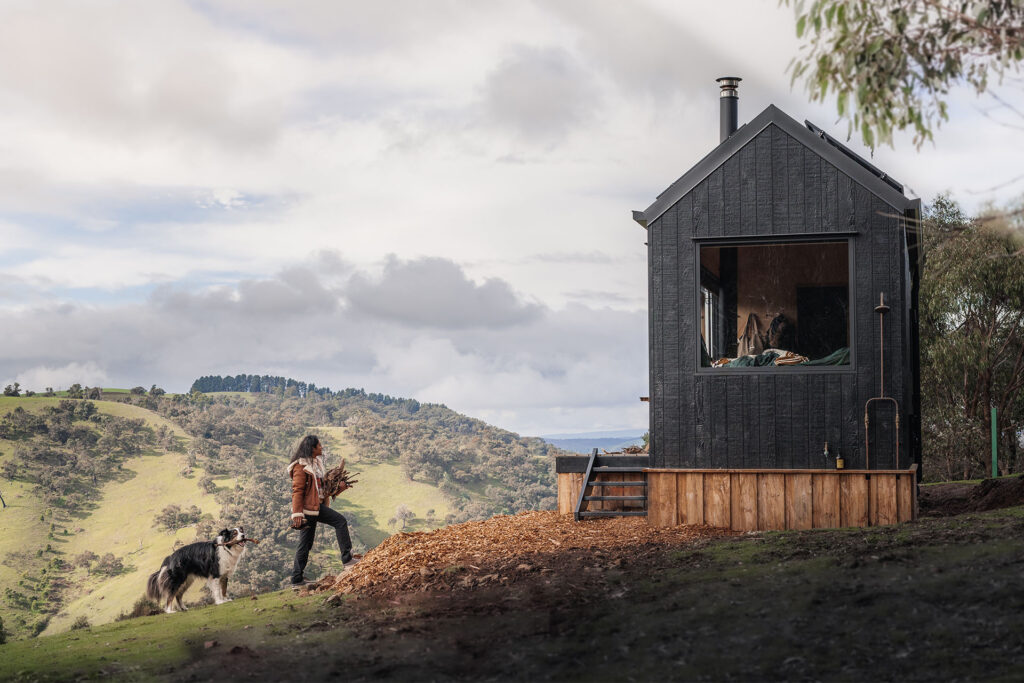
I ARRIVE AT MY Unyoked cabin an hour or so before sunset. Golden light is blanketing the valley, and I can hear birdsong everywhere. The cabin’s field guide suggests the prettiest of these sounds belongs to the lyrebird. I wonder if I’ll see one. The landscape feels very Pacific Northwest, with its thick forest and mountainous vistas. I feel peaceful, but with the vastness of the valley stretching out in front of me, I’m also acutely aware of my aloneness.
The thing about being in nature – and part of what I love about it – is that in its vastness, it can remind you of your relative insignificance in the grand scheme of things. Yes, I feel alone and small, but not necessarily in a bad way. If anything, my head feels clearer than it has in some time. The stay didn’t just come at a good time in terms of personal stuff; it also fell during a busy time at work. My mind needed a breather, and as the afternoon progressed into evening, I felt that specific kind of calmness that often comes on a long distance flight, when aeroplane mode is on and you’re left with nothing but your own thoughts.
“Time in nature often allows people with busy minds to not only relax, but to create space for new ideas, access critical thinking, improve problem solving, organisation and other higher cognitive function of the pre-frontal cortex which typically can be shut down at times of stress,” says Dr Aileen Alegado. “It helps ‘reset’ this heightened baseline, which allows us to complete the physiological and psychological stress cycle that would bring our bodies and minds back to equilibrium.”
In addition to publishing the Global Nature Study, Unyoked has partnered with Dr Alegado on developing an online program called MindREset, where participants can book a two-to-three night stay at one of Unyoked’s cabins, with a one-on-one talk session scheduled with Dr Alegado before and after the experience to reflect on pre-and-post feelings. A clinical psychologist who works with a number of professionals in high stress jobs, Dr Alegado is a big supporter of time spent in nature as a clinical intervention, as she’s witnessed the transformation it can help to kickstart firsthand.
“High performers are typically operating at a higher baseline of arousal, due to pressure and demands they place on themselves. They might also find their environments are not conducive to rest, which maintains their high levels of adrenaline and cortisol . . . I’ve seen clients who have been stuck with ‘thinking about thinking’ and/or over-analysis that sometimes being in therapy can exacerbate. Ecotherapy provides a good ‘detox’ from daily life that can create a reset and space for people to get back on track.”
She points to another study that shows time outdoors has been proven to “regulate our nervous system by enhancing our parasympathetic system activity and reduce our sympathetic nervous system” – that’s the flight, fight or freeze response – “while lowering blood pressure and heart rate variability, reduce cortisol levels and improve immune function”. As the body of evidence grows, Dr Alegado is seeing more of her peers recommend time in nature in addition to more traditional therapies.
“Another theory called Attention Restoration Theory posits that [being in] nature allows our busy minds to rest and recover from mental fatigue. This is due to the effortless attention [it instils], verses the direct sustained attention and stimulation that’s required of us in urban settings,” she adds.
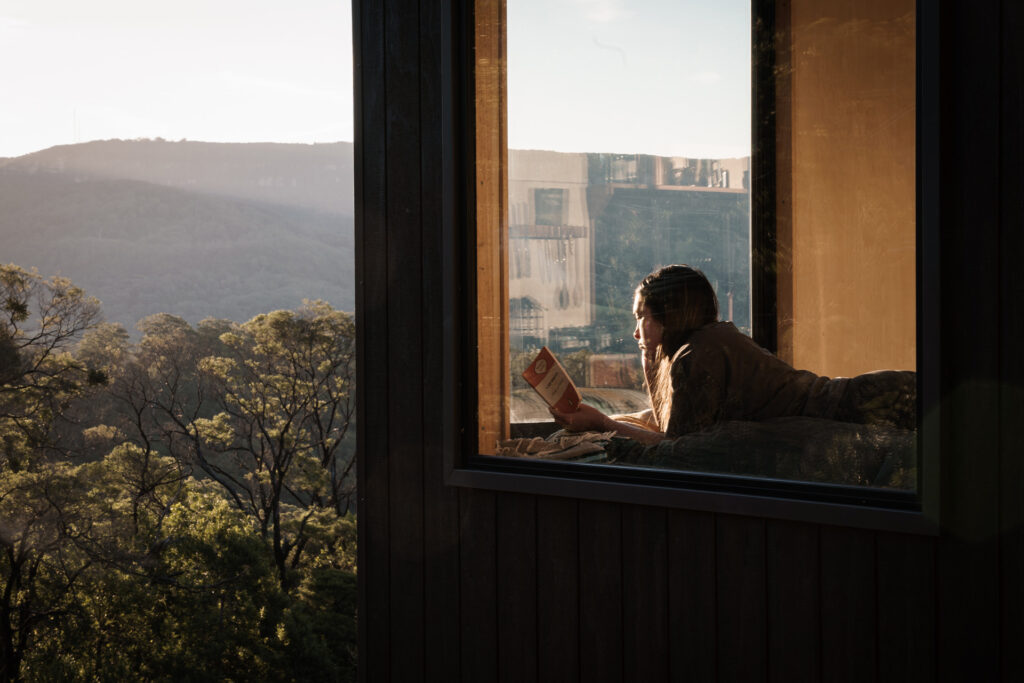
This, I can attest to. While I’m not on TikTok, the amount of flicking I do between tabs and apps can’t be great for my attention span. Down in Jamberoo, the longer I spent off grid, the slower it felt like things were moving. By 8pm on the second night, I was ready for bed, which might be the first time in a while I’ve been in sync with the circadian rhythm. I read an entire novel without switching back and forth between the page and my phone. I lit a campfire and watched it crackle, and, gradually, I felt calm in my aloneness.
On Monday morning, I woke up, made coffee – Unyoked knows its audience, and provides beans by speciality roaster Single O – and watched as a lyrebird walked across the dirt track in front of my cabin. I didn’t get a picture, because I’d let my phone go flat.
I’m sure that booking an Unyoked stay with a partner, friend or family member is – as laid out in the Global Nature Study – restorative. But if you’re looking to reconnect with yourself and the environment around you, I can also vouch for going alone.
Related:
The psychological benefits of this very Australian pastime
How to decode therapy-speak: Are you triggered or just angry?












